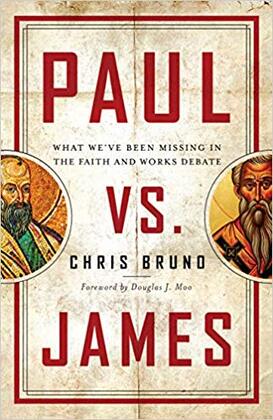The Person of Christ
It is not coincidental that the great summary of God’s purpose set out in John 3:16 revolves around belief: “For God so loved the world that he gave his one and only Son, that whoever believes in him shall not perish but have eternal life” (John 3:16, emphases added here and below). What we miss, reading this so-often-quoted verse out of context – as is so often done – is John’s continued stress on believing: “Whoever believes in him is not condemned, but whoever does not believe stands condemned already because they have not believed in the name of God’s one and only Son” (John 3:18). Four times in the space of these two verses John hammers home the point that it is only as we believe in the person of Jesus Christ as the Son of God that faith will be rewarded with eternal life.
Throughout his Gospel, John gives many examples of what and why we must believe (2:11; 4:41; 8:24; 10:38; 16:30; etc.), and they are all based upon the person of Jesus Christ, his nature, character, and the work that he accomplished. There is no room in John’s Gospel for any abstract “all you need is love” message. John’s Gospel is deeply rooted in the necessity of active believing faith in Christ as much as it is in showing the importance of love.
Indeed, the very purpose for the Gospel of John, as the apostle himself tells us near its conclusion, is so that we “ … may believe that Jesus is the Messiah, the Son of God, and that by believing you may have life in his name” (John 20:30-31).
The Work of Belief
We know, as the apostle Paul clearly affirms, that “the wages of sin is death, but the gift of God is eternal life in Christ Jesus our Lord” (Romans 6:23), but John’s Gospel paints a complementary picture emphasizing that although God does give eternal life freely, the gift comes with responsibilities. While Matthew’s Gospel shows Jesus asserting: “Not everyone who says to me, ‘Lord, Lord,’ will enter the kingdom of heaven, but only the one who does the will of my Father who is in heaven” (Matthew 7:21), John’s Gospel records Jesus instructing his disciples in the work that relates to faith: “Do not work for food that spoils, but for food that endures to eternal life, which the Son of Man will give you … Then they asked him, ‘What must we do to do the works God requires?’ Jesus answered, ‘The work of God is this: to believe in the one he has sent” (John 6:27-29).
Although it is easy to presume that Jesus is talking about simply accepting or holding a belief here, John’s wording shows that in reality he is stressing the active believing that is itself something that we do, rather than just accept. For John, our belief is not a thing that we possess, but an action that we do on a recurring basis – as we see in the way he repeatedly tells us that the disciples believed as they witnessed Christ’s miracles and teachings (John 2:11; 16:30; 20:8; etc.). This leads us to John’s final emphasis regarding the nature of true believing.
Ongoing Perseverance
Precisely because true believing involves repeated action on our part, John also stresses that believing must be coupled with perseverance. The apostle gives clear instances of individuals who had believed, but who stopped believing. In John 8, for example, we read: “Even as he spoke, many believed in him. So Jesus said to the Jews who had believed Him, ‘If you continue in My word, you really are My disciples’” (John 8:30-31).
The importance of ongoing and continuing faith was already stressed by John two chapters earlier when he reveals that previously believing individuals “… turned back and no longer followed him” (John 6:66). This scripture alone shows that believing faith is not something entered into on a one-time basis, but an ongoing action that must be maintained through perseverance.
When John tells us, near the close of his Gospel, that “these [things] are written that you may believe that Jesus is the Messiah, the Son of God, and that by believing you may have life in his name” (John 20:31, emphasis added), the word “believe” is literally “be believing” – ongoing believing – and this conceptual conclusion of the Gospel echoes its opening concept that “In him was life” (John1:4).
John’s Gospel clearly shows us that true believing is based on the person of Christ, involves active expression on our part, and must be maintained through perseverance. The apostle makes it clear that lack of these three factors led to many not believing or losing the belief they once exercised. It is in these three ways, however, that John shows we do truly believe, and through that believing we have life.










 RSS Feed
RSS Feed
